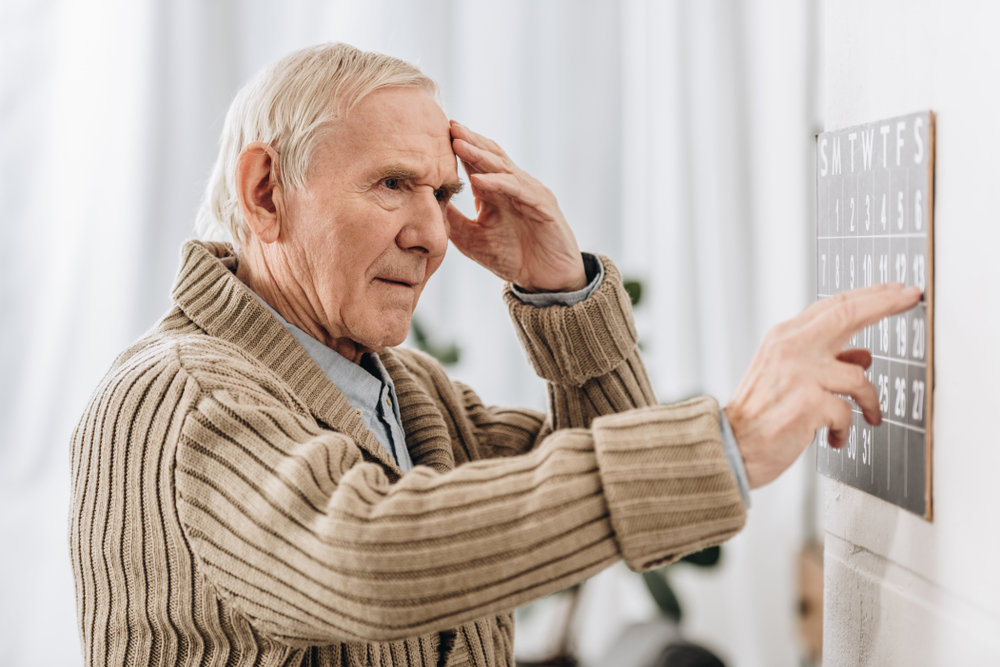What Causes Sudden Confusion in Elderly Adults?
Category:

Sudden confusion in the elderly, often referred to as delirium, is alarming for both the elderly person and those who love them. Intermittent confusion in elderly people may indicate the beginning stage of dementia, but there are other reasons for a sudden episode of confusion.
Age-related dementia usually develops over the course of months or even years. Assessing confusion in the elderly is necessary to determine whether there is an underlying cause or medical reason for it, especially if elderly confusion comes and goes.
What Causes Sudden Confusion in Elderly People?
The unknown causes of confusion in the elderly can be surprising. It’s easy to shrug our shoulders and attribute confusion to “just a normal part of aging,” But, did you know a common urinary tract infection (UTI) can cause extreme confusion and delirium in an elderly person?
If an elderly person has a sudden change in behavior, including extreme agitation, hallucinations, and overall disoriented thinking, an untreated UTI is often the cause. This mental status change is the result of an infection in the body and will usually subside after the infection has been treated with a course of antibiotics.
Up to one-third of elderly patients hospitalized with UTI’s experience some degree confusion and reduced awareness of their surroundings according to research conducted at Cedar-Sinai research centers. An infection anywhere in the body can cause these symptoms, so a visit to the doctor is necessary to determine the reason for the sudden confusion.
Let’s Look at Other Possible Causes of Confusion in Elderly Adults:
- A lack of oxygenated blood circulating through the body can cause sudden mental disorientation. An asthma attack, or an infection in the heart or lungs might be the culprit.
- Undiagnosed anemia is another condition that is caused by a lack of oxygen in the blood, which can lead to a decrease in normal brain function.
- Someone who is diabetic, experiences a lack of insulin in the body, or has abnormally high or low blood sugar levels. They may display symptoms of confusion until their blood levels are back in the normal range.
- Excessive alcohol consumption can cause a person to be disoriented, agitated and unable to think clearly.
- A stroke, or “mini stroke”, (Transient Ischemic Attack or TIA) causes confusion and disorientation.
- Certain medications that are often prescribed for elderly patients, such as opiates, sedatives, diuretics, and steroids can cause side effects that lead to confusion, lethargy, and agitation.
- Thyroid disorders and other hormone disorders cause disorientation in some cases, especially if the dosage isn’t monitored regularly.
- Low potassium levels or an imbalance of minerals and salts in the body can disrupt normal brain functioning in some people, especially the elderly.
- Carbon monoxide can build up in the home due to faulty heating systems, poorly ventilated fireplaces, or improperly installed hot water heaters and stoves. If there is not a carbon monoxide detector in the home, carbon monoxide poisoning, a life-threatening condition, is not detected until symptoms appear. The early symptoms are confusion and disorientation. If the person is not removed from the home in time a silent death can occur.
Download Our Heart Health Guide
Dementia and Alzheimer’s are the first things we think of when our loved one shows signs of deteriorating mental capacity, but the cause of confusion in elderly people is not always a normal part of the aging process.
If you notice any of the symptoms listed above in your loved one, you should not hesitate to make an appointment with a physician who can analyze the patient’s condition.
An extensive examination and analysis of all the contributing factors is necessary to determine why the sudden onset of confusion is occurring. In many cases, there is an underlying cause that can be successfully treated and mental functioning can be restored.
Subscribe
Date: 2023-05-02
Category:


